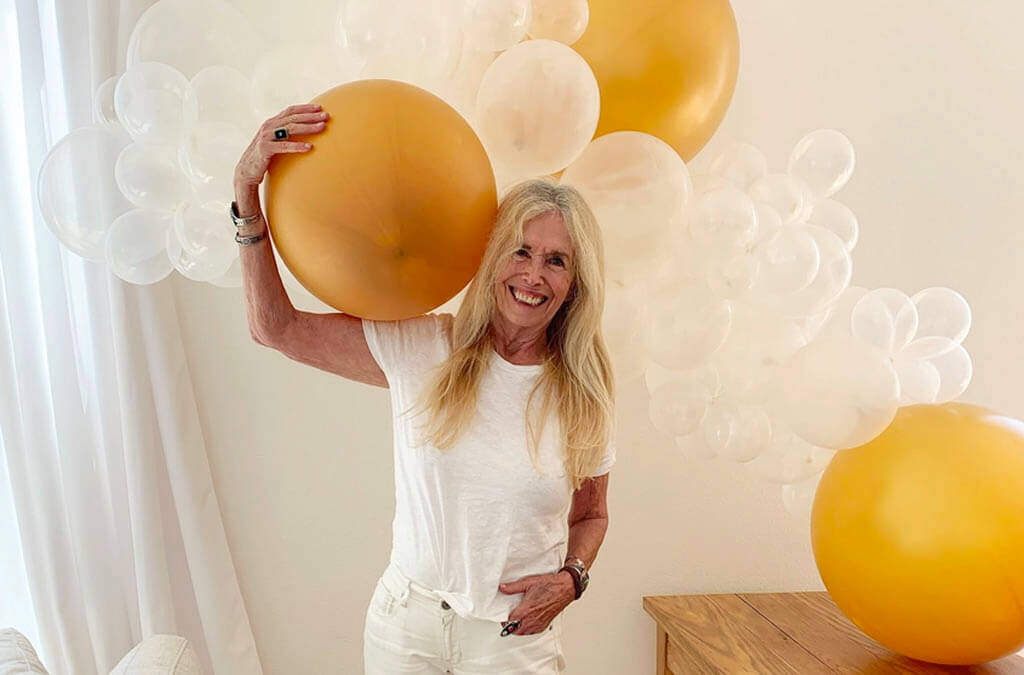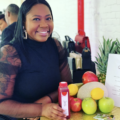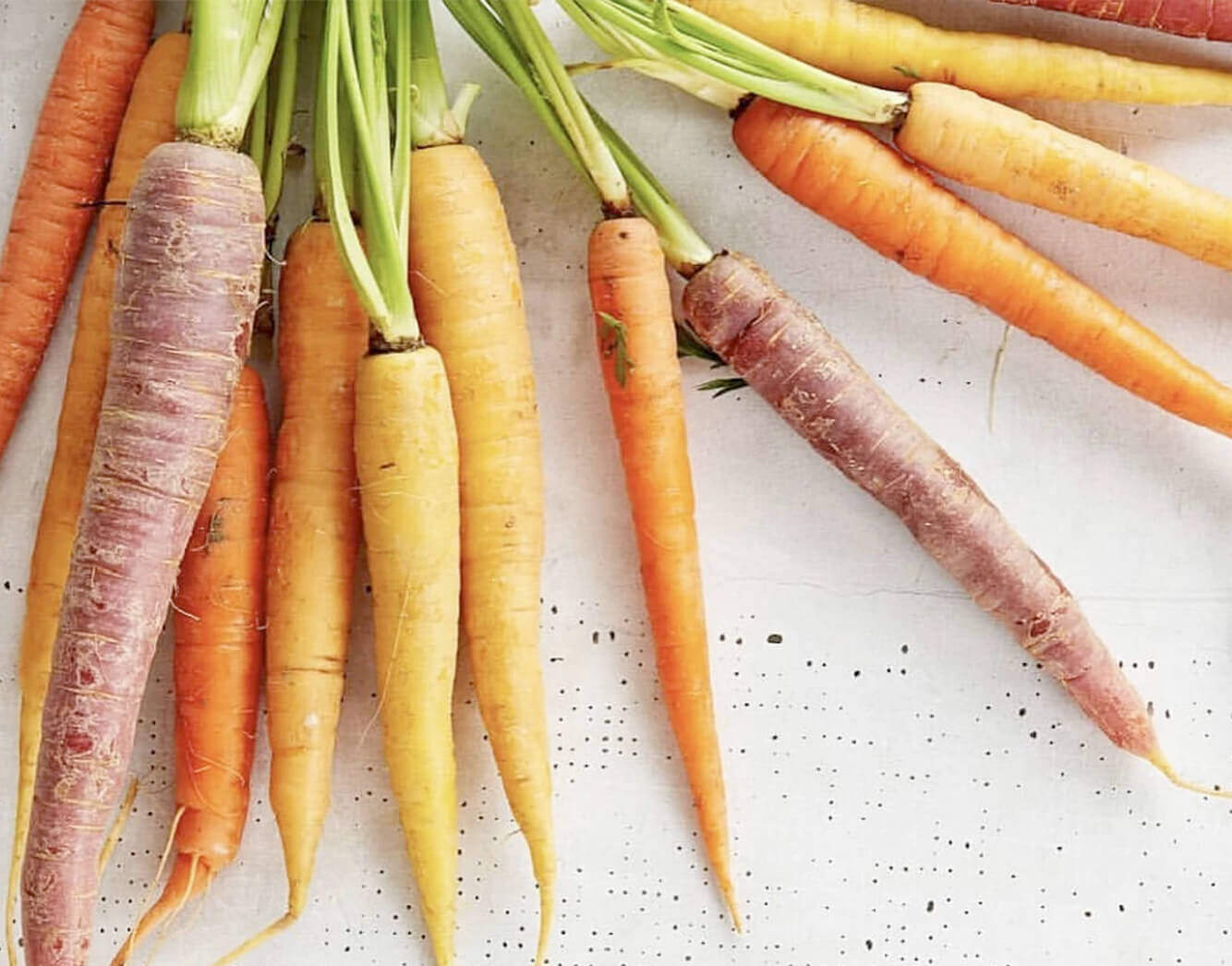We are talking about juicing, raw & vegan diets, smoothies, Type 1 diabetes, and more.
We are starting the year strong by bringing two thought leaders together to talk about topics and ideas that matters to our community.
We are also pleased to introduce Ilene Ruhoy, MD, Ph.D., our new chief medical officer at PURE Juicer. She is a board-certified neurologist with a Ph.D. in Environmental Toxicology and a fellowship in integrative medicine at the University of Arizona. Her passion is bringing whole foods into Western medicine and works with patients all over the world.
Mimi Kirk is a pioneer in veganism and juicing. She is a best-selling author, and today, at 82 years old, she is full of life (and not prescription drugs).
We invite you to join us for an hour or look below to read the transcript, which we have broken up into parts.
PURE – And hello everybody. My name is Jen Longtin. I am the vice president of marketing for PURE Juicer. I am so honored to be here today with our chief medical officer who has just started with us Dr. Ilene Ruhoy, and the famous Mimi Kirk. We’re gonna dive into everybody’s story but Mimi there’s just so much that we have all admired and known about for years. And we’re just so thrilled to have both of you here together.
So my job here is really just to keep the conversation going and bring up some topics that some other folks have brought up but it’s really to hear both of you talk about the power of juicing, the power of raw foods and what it does to your bodies and really just getting both of your perspectives. Dr. Ruhoy, you have a medical approach and point of view, but you also know so much about integrative medicine and environmental toxicology and then Mimi you have been a raw vegan and a proponent for juicing for decades. So I’m thrilled to have you both here. We’re gonna dive in right now and who wants to go first? We wanna just hear maybe a version of your story. What’s important to you and yeah who wants to start first?
Mimi: – I’ll start.
PURE – All right.
Dr. Ruhoy – Great.
Mimi Kirk – Because I’m the oldest so I’m gonna go first. Speaking of the oldest. I’m the youngest 82, that’s my current age. I was born in 1938 and I’ve actually been a vegetarian or vegan for the better part of my life. I’d go off once in a while, but I started at 30 and learned about animal cruelty and didn’t want any part of it and that’s what started me out.
So I, you know, went off occasionally and then I became a vegan ’cause I thought I really learned what I needed to do for the environment and everything else. But it wasn’t until I was 69, that I became a raw vegan. And what happened is that I was eating some regular food. I had a new boyfriend and I was cooking for him and cooking to impress. And I cooked everything and ate everything and I put on 22 pounds and I went for a doctor visit and he told me my blood pressure and cholesterol was high and handed me a prescription. And my family history health is not great. They’ve all had cancer and everything you can think of diabetes and heart problems and they were all on medication and I just didn’t wanna do that.
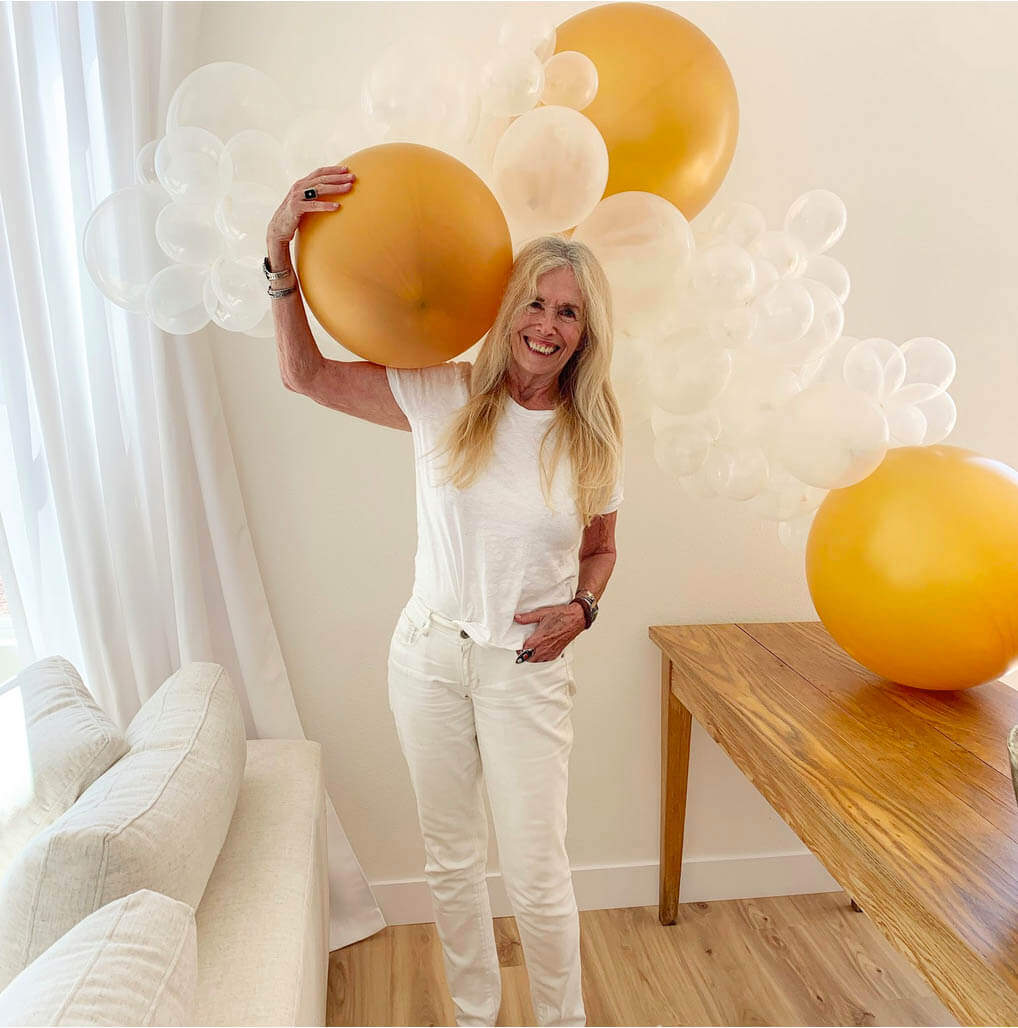
So I started researching and raw food kept coming up. I thought “Oh no, I love to cook and eat. “This is not gonna work to just eat salads.” But I thought I had to try it. So I started juicing that was the first thing I did. I had used years ago I’ve always used something, but not, I used to do little glasses. Like I just thought, Oh beet and carrot or something, you know and I would use, I didn’t know anything about juicing and there really wasn’t much out about it in the ’70s. And so I always juice and had some clunky machines that I would choose for awhile and then I couldn’t stand cleaning them and I’d stick them under the counter and wouldn’t use it for awhile. But now I had to get serious about what I was gonna do. So I started juicing for two weeks and just eating you know, salads and you know really clean plant food. And by the end of the two weeks I knew I was onto something. I felt so much younger I kept looking at myself, my eyes were all bright and my energy level was just all over the roof. And I thought, okay this is it. So since then, I’ve been a raw vegan just 100%. Now I eat some cooked vegan food, but juicing to me has always been the major thing that floods my body with nutrients. And so basically that’s my story. I’m the mother of four kids and seven grandchildren. And I’ve been in a long-term relationship with my boyfriend for 18 years and he’s 20 years my junior, thank you very much.
Dr. Ruhoy – Wow.
Mimi Kirk – And you know, I’m as healthy as anything. And this is what’s important to me. It’s not about weight, I’m a very good weight. And you know I still have a nice figure, but to me it’s not about anything but feeling healthy inside. So the way I look, I am gonna be aging. To me I look way different than I did 10 years ago. But I feel better than I felt 20 years ago. So I think that’s a big plus for the way I eat. I flood my body with nutrients and I think it really makes a difference in every way whatsoever. And of course I exercise every day and I think positive. And I think those three, that combination of the three things I think really makes a difference in life. I feel like I wake up in the morning honestly, I could be 35, 30, 40 years old, no extra pains, I just hop out of bed. I don’t realize my age until I pass a mirror. And then of course I’m shocked, but who’s that woman. But other than that, I feel great. So that’s my story in a nutshell.
PURE – Oh my gosh, Mimi that’s amazing.
Dr. Ruhoy – You were such an inspiration seriously.
Mimi Kirk – Thank you.
PURE – Ilene what about you Dr. Ruhoy.
Dr. Ruhoy – My story is not nearly as impressive as Mimi’s story. I too have been a vegan slash vegetarian basically since I’m 15, I was a vegan for many years. And then when I was in medical school and spending many hours at the hospital it was hard to sustain myself so I was more of a vegetarian than a vegan at that time, you know and back in those days actually it was actually very difficult to be a vegan especially in a hospital cafeteria. So I sort of had no choice, but to be vegetarian but once I was able to better control what I ate then I returned to veganism. But then I started to feel that, I started to learn more about health and the body and evolution and I sort of recognize the importance of plant-based diets as well as realizing that, you know when we cook them we actually change their molecular structure and they’re not as nature intended. So I started to dabble in raw foods and juicing, here and there as best as I could. And I actually spent about a year even before my health challenge which is when I sort of really converted but I actually spent a year and a half as just a raw foodist and I had never felt better in my life for sure.
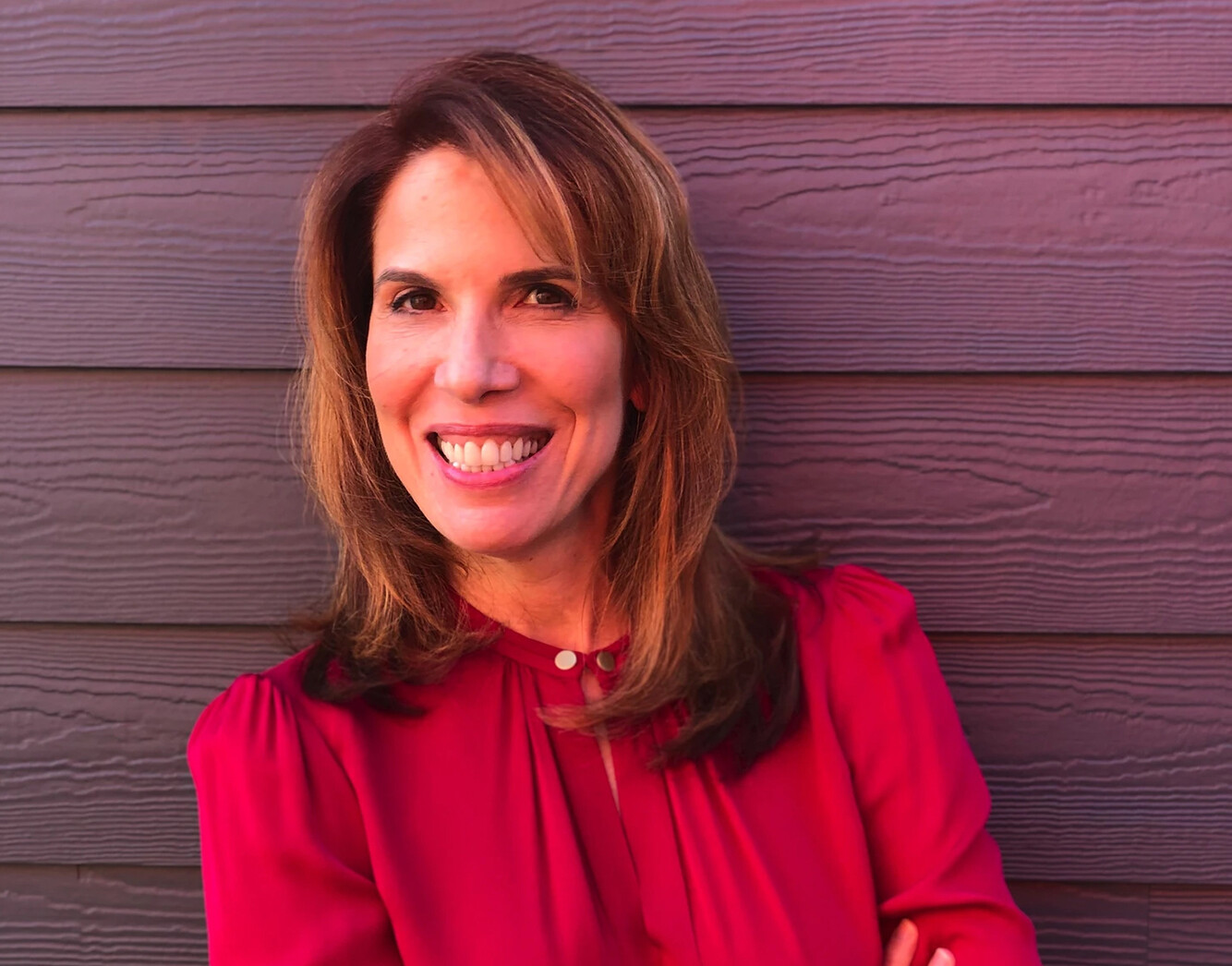
I mean, when I think back to those days, I almost don’t recognize who I was the amount of energy that I had and the amount of mental clarity that I had even the way my skin and my hair were. It was really the best time, but I was in a place in my life where I was able to really always control what I was eating. And, you know, being in medicine sometimes that’s very difficult to do. Then in 2015 I was faced with a brain tumor and I had to have surgery, a resection. And it was actually very difficult to chew afterwards because they had to cut through muscles that you need for chewing. So I had already been juicing, not as regularly but I had been juicing and so I realized that I, you know, in order to heal appropriately I need to sort of acquire enough nutrients and vitamins. And so I just started juicing in larger volumes because I was able to drink. And my recovery was steadfast. I felt better exponentially each and every day, it was quick, I was able to go right back to work full time without a step. And ever since that time I really have maintained consistency in a lot of my dietary choices, largely obviously pure veganism but also juicing on a regular basis. I often juice first thing in the morning. It’s really the way that I start out my day. I definitely feel the difference on days when I haven’t juiced. And over the years, you know this was in 2015 and over the years I have faced recurrences and usually coincides with me sort of not addressing my own needs first. And so then I would sort of up my game a little bit and make sure that I pursue juicing and appropriate diet and other lifestyle choices, but I’ve been an advocate for food as medicine for many years. The power of nutrition for our bodies, for our health for our longevity, for even disease management as well as for preventative purposes cannot be understated. So I regularly preach it with my patients. I specialize in chronic and complex neurological disease. And so even with this patient population, we talk about the importance of their diet choices and nutrition. And so again, food is medicine is one of my passions. And I’m just so proud to be part of this group certainly and PURE Juicer. And yeah, and that’s my story as well.
Mimi Kirk – That’s a pretty great story.
Mimi Kirk – Med school alone well, Bravo after med school the way you were practicing.
Dr. Ruhoy – You know back in those days, you know veganism and, I feel like maybe I’m just in a different world right now, but I feel like it’s much more mainstream and much more popular and very easy to do certainly here in Seattle. But back in medical school, I was there between 1996 and 2000. I mean, I don’t think it was, this was in Pittsburgh. And so maybe it’s not as much as the planned basis Seattle is but I felt it was a lot more difficult and a lot more difficult to find good choices, good options to be as regular and consistent as I am now.
PURE – I was back in the Midwest for a family reunion just a few years ago. And when I offered to put a salad together for dinner they said, we already have a vegetable on the table and it was corn.
Dr. Ruhoy – It is funny I mean, when I talk to patients about salads, they’re always sort of talking to me about their side salad and I always I should actually pull up, pull out the bowl here I’m at my own house. to show you the size of the bowls of the salads that we have in this house and my husband is a huge plant-based eater. And he eats salads on bowls that you know people usually serve like, you know, big barrels of like.
Mimi Kirk – The main salad yeah me too.
Dr. Ruhoy – Right, those are the kinds of salads that we eat. So it is funny to try to reconcile how people think about vegetables and salads as you know, being more of the main part of the meal, as opposed to something on the side that you may not even get to if you get too full on, you know the major portion.
Mimi Kirk – I’ve gotten the eye from in a restaurant when I order four salads when they all are small salads and I’ll have four of those please. You know it’s like All four of them. We say things like extra vegetables and then, you know they always give us something like, “Well we’ll have to charge you for that.” And we’re like, “Okay.”
Mimi Kirk – What about you Jen, what’s your story?
PURE – What is my story? You know, I started juicing a little over a year ago I would say probably 20 months ago. And part of it was because of Dr. Ruhoy. She answered a lot of the questions that I had about juicing because I had heard all of the pieces of, you know I should just be eating that food instead, you know is it gonna be too much sugar for my body? And, you know Dr. Ruhoy really explained to me, how juicing works? And then of course, being able to work at PURE Juicer and then having to dive into the whole juicing I fell in love with it. I mean, for me juicing has really changed my life.
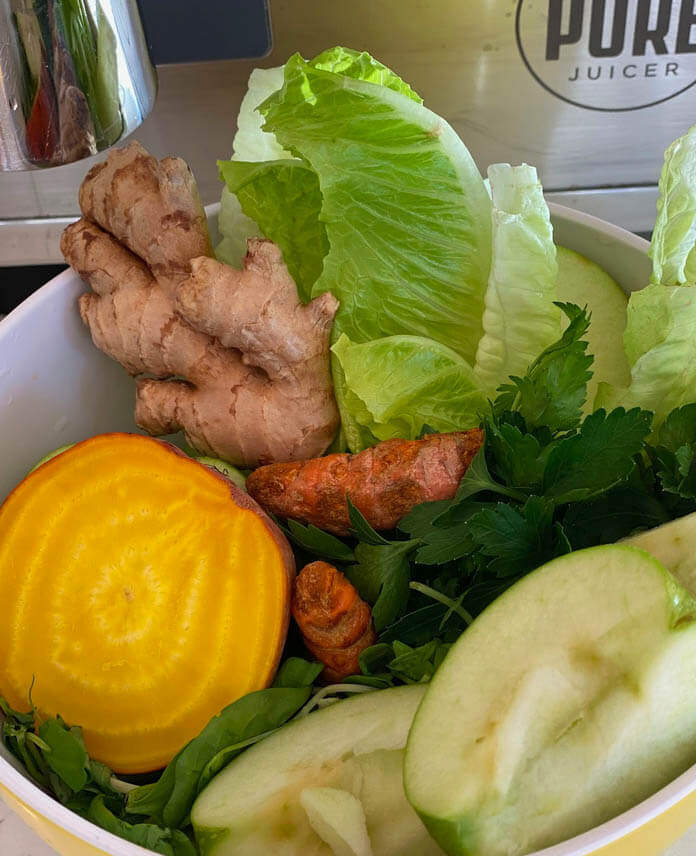
I’ve always been passionate about wellness. I’ve always been passionate about, like you Mimi, fitness and wellness, & self care. And I’ve struggled with depression in my life too. So just all of those different things. I mean, I kind of ride a pretty narrow path. So I was like, do I really need to do one more thing for my health? And then here I am today thinking it’s the greatest addition that I’ve really had, not just for myself but for my whole family. I know that my skin changed almost within a week’s time of juicing so much that my dermatologist asked me what I did differently because my skin looked so much better. And I love her because she’s not afraid to tell me if something doesn’t look good. So that was good and then also my son, I asked him, I said, “What do you, “what do you love about the juice “now that you’ve been doing it for a year?” And he said that he noticed that his skin is better. You know, as a teenage boy, it’s a big deal for any age to have good skin. And then also that he just feels better, he just feels stronger, he feels better in the day. So I would say that in my story I’ve always had a passion for wellness and fitness. So to have both of you here today is just my absolute dream especially because I feel like we’re moving into a world where we’re bridging between medicine and what used to be sort of this controversial.
Dr. Ruhoy – Right.
PURE – You know eating raw vegan, like raw food. I mean that’s so controversial and it’s really not controversial.
VEGANISM – CONTROVERSY FROM THE PAST
Mimi Kirk – Yes vegan was controversial everywhere you go.
Dr. Ruhoy – Oh yeah.
Mimi Kirk – Like that with a disease word.
Dr. Ruhoy – Yes.
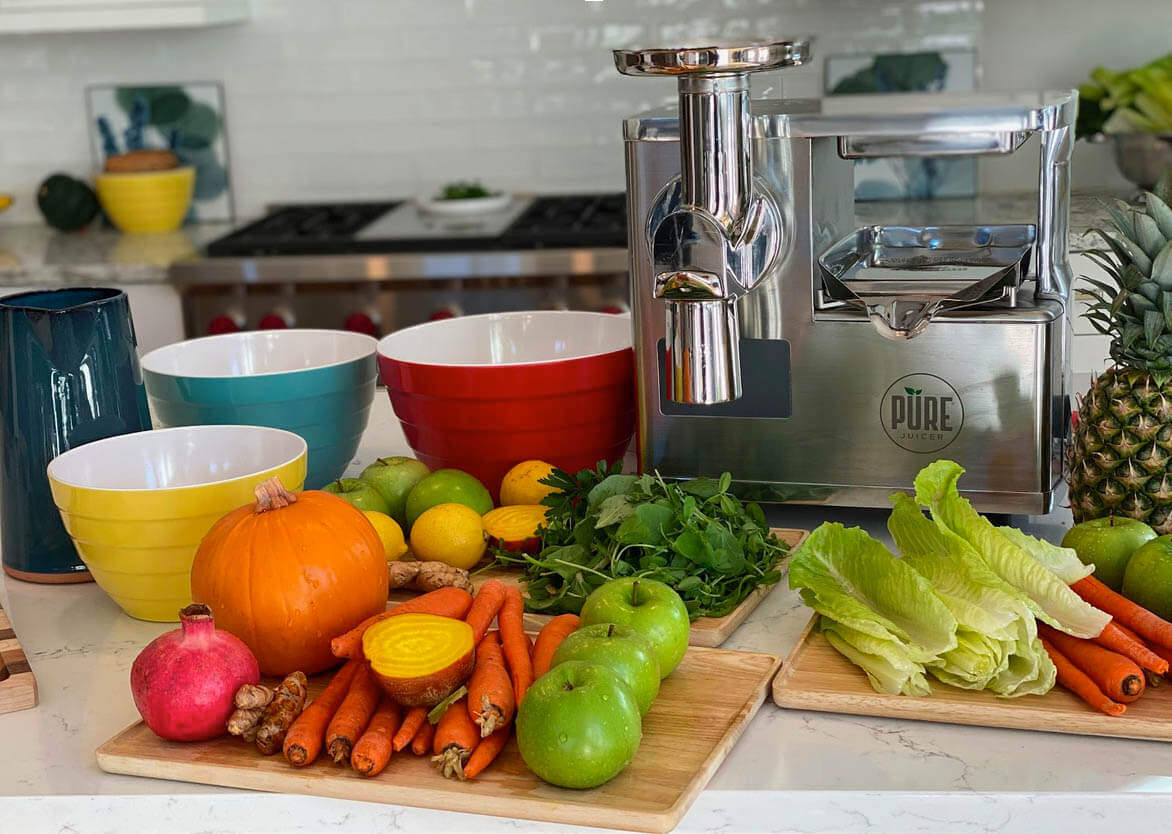
Mimi Kirk – If you said you were vegan, it was like, what? You know, what’s that? And I started like I mentioned being vegetarian and 1970, probably yeah it was 1970 and my kids were small and I came home and said, “We’re not gonna eat meat anymore. “You can eat if we go out, but I can’t cook it.” And I told them why, and there’s, “No, we’ll do it.” So my kids were that way they’d go to school and their friends would all come over and go, “What is that? “What is that?” And they saw big bowls of fruit and all the kids were at my house all the time. And my kids said they went to their friend’s house. It was like boxes of cereal, completely different. They said, “Mom, you would not believe “what’s in the refrigerator and on their shelves. “They don’t have anything to eat that’s fresh.” And so we were very early, the whole family was very early jumping into this. And I mean I really didn’t think about health at that age. I have to say I was widowed at 29 and I was 30 years old. And I know, I was always concerned about my children’s health, but it wasn’t about health for me it was really about the animals. I didn’t, it’s a bonus that my health was so good but I didn’t even put that together. Didn’t occur to me that eating the way I did was gonna change my health all these years.
Dr. Ruhoy – Absolutely. When I was 15 I wasn’t thinking about health either.
Mimi Kirk – I was thinking about the animal cruelty, I’ve always been an animal lover.
Mimi Kirk – And so that’s what I was thinking about absolutely.
PURE – Yeah.
Mimi Kirk – And when you’re that young of course I don’t think health is on any 15 year olds, radar.
Dr. Ruhoy – Sincerely speaking, or even 29 year olds. I mean, you know I think, I think that comes later, you know in midlife you start really thinking and taking your health seriously.
Mimi Kirk – My initial interest was about animal cruelty.
Dr. Ruhoy – Yeah and I think most of the young people today that have chosen that path are the same way. I have a lot of parents that get in touch and they say it’s not healthy for them to be eating like this. And I said, “I raised my kids that way. “And they’re all totally healthy “and good immune systems and everything.” But a lot of parents are so afraid. Now, you know when you live on the coast, like we do in San Diego, or you live in New York, it’s like all common. And it wasn’t for a long time that I was able to travel and even go abroad where it was totally accepted.
Mimi Kirk – Oh I completely agree.
Dr. Ruhoy – Well travel actually it is definitely, that’s one of the obstacles, it’s a challenge.
Mimi Kirk – Yeah.
Dr. Ruhoy – And obviously less so today than it has been in the past.
Mimi Kirk – Yeah.
Dr. Ruhoy – But when my husband, daughter and I, when we’re planning travel we always actually do searches about the question is always, what are we going to eat? Where are we going to eat?
Mimi Kirk – Where are we gonna eat, yeah. Well now everywhere.
Dr. Ruhoy – Address that before we go anywhere.
Mimi Kirk – Everywhere I go, they understand what vegan is. It’s not like, “Oh yes, it’s vegan “it just has a little chicken on it. “They don’t do that anymore, “they actually know what vegan is.” And raw, there’s raw restaurants all over. I’ve been to Poland, I’ve been everywhere doing lectures and stuff and it’s raw, the food restaurants and there’s vegan restaurants. And it’s just very easy to adapt now and I am hoping that more of this happens.
PURE – Yeah.
Dr. Ruhoy – We need it for many reasons on the environment and everything, I just think we need it.
Mimi Kirk – Oh I completely agree.
How We Started Our Plant-Based Diet
Mimi Kirk – And I, you know, I think a lot of people have to start slowly. Some people can’t, I transitioned immediately, but I think for a lot of people, they need you to start eating a few times a week, eating that way and seeing how good they feel. And that’s the one thing I always tell people if you don’t do anything else, juice because you’ll start to feel good after you drink that juice.
Dr. Ruhoy – That’s right.
Mimi Kirk – And then if you’re not the next meal, if that’s not good, you’re not gonna be, you’re not gonna be wanting to have that.
Dr. Ruhoy – Absolutely.
Mimi Kirk – So you’re gonna want something that’s more healthy.
Dr. Ruhoy – Yeah I couldn’t agree more when I’m counseling and guiding patients on their nutritional plans I always stress baby steps because if I expect a miracle overnight, I know that they’re not most of the times, they’re not gonna be able to do it they’ll become discouraged and I probably won’t see them again. And my goal is to care for them in the long term. It’s I always say it’s a partnership it’s a journey and we work on it day by day and sometimes we make bad decisions but sometimes we make good decisions and the goal is to make more good decisions over bad decisions when it comes to our health to where we get to the point where we’re making mainly good decisions, mainly good decisions.
PURE – Well, my background is different in that I didn’t, I was, I mean I loved animals but I always I’ll be honest. I always separated the two. I didn’t choose a vegan diet, partly because a lot of the vegans that I knew ate a lot of bagels. You know, they lived on bagels and I couldn’t live on bagels.
Dr. Ruhoy – I love bagels, I’m from Brooklyn, New York. I mean, we eat bagels.
PURE – All right but I couldn’t because I…
Mimi Kirk – Me too I eat bagels all through.
PURE – Yeah, I couldn’t. I thought that I couldn’t, because it was the sugar and the bread that got me into sort of my dis-ease in my ’20s. ‘Cause that’s all I lived on was cereal, bread and sugar. And so for me the only way that I could keep my blood sugar low was meat and so what’s interesting is that when I started juicing is that I actually lost all taste of it for me. And I really didn’t start off with that but I don’t eat meat anymore, and it really wasn’t because it wasn’t a conscious choice but it was interesting that juicing for me came first and what came afterwards is just a complete disinterest in eating meat. And I love it, and I feel, I mean and I feel that much better. It’s like, you start the juicing, you feel good just like you said. And then all of a sudden you feel good and now it’s you don’t want the meat. So you eat more vegetables and you feel better. And then you can go for a run and you don’t ache the way that you used to.
Dr. Ruhoy – Right, yeah.
Mimi Kirk – That’s what I find, that’s what I find working with people that if you just couldn’t start them out to juice which is pretty easy. And even if they don’t make it, they can find it somewhere until they’re addicted and then they have to have their own juicer of course. But once people start that out and they know what it feels like to feel good. I think honestly, I think there’s so many people walking around that don’t know they don’t feel good.
Dr. Ruhoy – Oh I completely agree.
Mimi Kirk – They’re so used to getting up and like aches and pains and not feeling good.
Dr. Ruhoy – Right and they blame it on aging often You know they, I’m getting old.
Mimi Kirk – Yes.
Dr. Ruhoy – I mean I hear that all the time.
Mimi Kirk – You know it’s how they think everyone feels, everyone must feel achy at this age.
Dr. Ruhoy – Achy that what they say. They just say, “Oh, well I’m 40, or I’m 50”.
Mimi Kirk – Right, exactly.
Dr. Ruhoy – No, wait, that’s not normal. But that’s what, because they’ve been eating this diet for so long and gradually starting to feel worse as they age, they think that it’s okay to eat that way. But once they start putting nutrients in their body through juicing I really feel it changes everything, just like you said, Jen, for you it made you say, “Hey, this feels good. “And well, this doesn’t feel so good.”
PURE – Yeah.
Mimi Kirk – Then you can start eating more vegetables. You know, I always tell a lot of people just drink juice in the morning, maybe have a fruit or something in between lunch and then at lunch you eat a big salad as big as you can with everything in it all the vegetables that you can think of. And then, then have a cooked meal for dinner and you’ll see how you feel. Just try that for a week and see the difference between eating that way during the day and then having something that you cook at night, and a lot of times that helps people transition easily that way.
Dr. Ruhoy – Yeah, I think well we fast overnight while we sleep. And so when we wake up in the morning our GI tract is completely naive and I like to say almost virginal, right? So we haven’t introduced foods or liquids to our GI tract. So it hasn’t had to do any work yet. It hasn’t had to produce enzymes or acid or so on. So to start the day off on a completely naive GI tract and just feed it, large consumption of vitamins and minerals and other healthy compounds from the juice it’s just passively absorbed. It doesn’t require a lot of energy from our body. So it is so easily absorbed and it really just jumps starts the day. And I found that there’s no better way to start the day because you just get that burst of vitamins in it. And it really starts all of the cellular machinery and all the biochemical reactions and gets the physiology underway. So that is why I always recommend people start first thing in the morning. I think it’s and I think it’s a really healthy habit to have. And that sometimes even with patients who are or I should say not everyone’s patient sometimes I just talk to friends and family and people but you know, who are trying to transition. I say, even if you just start with just doing that for yourself for a couple of weeks, you’ve started your day off right. And if the day goes sideways at least you’ve done something well for yourself. And I say that about exercise as well.
PURE – Right.
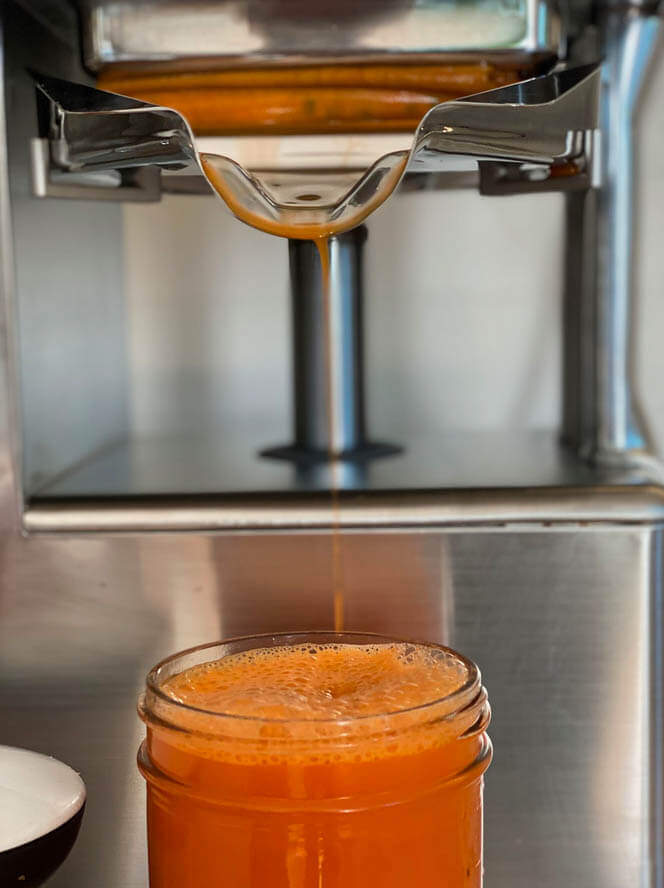
Mimi Kirk – I’m a morning exerciser and so, you know I always say that at least I know that I’ve started my day off right. And I’ve done something good for myself at least today. So I feel the same way about juicing.
Dr. Ruhoy – Yeah.
Mimi Kirk – I look at it this way that through the night you’re fasting and so breakfast is break-fast and it’s what you break it with that is important. And that’s why I think juice is important in the morning because you don’t wanna break that fast with something heavy. And juice is like the ideal thing to have. I try to eat very early myself, you know, I don’t like to be a late eater because I don’t like to go to bed with any food on my stomach. So I try to eat early so I’ve got all those hours in between my last meal of the day until morning. If I broke that with a big meal I would be feeling heavy all day.
Dr. Ruhoy – Absolutely.
Mimi Kirk – So like you, I think I’m that way with exercise. I like exercising in the morning, but that’s, I think of it in those terms break fast, breakfast. And that’s how you break your fast in the mornings by juicing. And then you do have all your nutrients for the day or you just got through with a run or a walk and you’re finished with it for the day. And so that takes care of your day. And in case you get bogged down with something, you’ve got that in already. That’s so for me, I like the same thing that makes me feel like I’m really doing something for myself.
Dr. Ruhoy – I love that.
PURE – Mimi, do you have a juice that you like to drink in the morning? Do you find that there’s certain vegetables and fruits that work really well for you in the morning or is it variety or seasonal?
Mimi Kirk – Well, first of all I was like a green fiend. I had just couldn’t get enough greens in my body and everything I fixed would be green with like maybe an Apple or a piece of pineapple or a little pineapple juice in there or something but it was green, green, green, but now I’m open to more varieties and I liked more varieties and I started doing more varieties when I wrote my book because I had to try everything out. So I had to get off just all greens and experiment with other juices. So then I was fixing everything that was like the best writing that book was the best time of my life ’cause I had juices all the time. I was juicing and Mike was photographing and I’d be juicing again and I’d be trying another juice. So I really like everything. I love cucumbers in my drinks…
Dr. Ruhoy – Oh I love cucumber.
Mimi Kirk – Just love it, I love everything about the cucumber, the moisture, the hydration.
Dr. Ruhoy – Yes.
Mimi Kirk – I just feel I just feel really good with the cucumber. So that’s one thing I like to put in every day and I love celery I’m not one who likes to celery by itself. I’d like to taste of it but it doesn’t work for me as well as a mixed juice. I know celery is very popular juice right now and I’m sure it’s really good for you, but it doesn’t work for me as well as getting the other nutrients in there. But I like carrots and beets and ginger and lemon you know, I like, you know cabbage in a drink. I like everything. I can juice anything and really like it. I don’t have an actual favorite and it depends what’s left in my refrigerator. You know, now that I’m sending out for food and I’m not shopping, sometimes you order something and it doesn’t come from whole foods. They don’t find it or it’s out of stock or whatever. So I’ve been more flexible since COVID. So whatever’s in there, all the kinds of mixed lettuce that I have. I always have a refrigerator full of lettuce but I really like all the drinks and I do, with this is one thing I found. When I’ve been on a juice cleanse and I think they’re nice to do every once in a while I need a variety, I don’t want the same thing every day. I want something that’s just straight carrot sometime with a little ginger and lemon, I want a green one drink one time. I want a combination of things and that’s the way that’s the way I usually do whatever my body wants. I think after you’ve been choosing for a long time you just have instinct on what you need for the day. I think new juicers need recipes and things to work with, until they get used to juicing.
Dr. Ruhoy – Yeah.
Mimi Kirk – But I think once you do you just have an instinct and then sometimes it’s seasonal. Like if you can get a bunch of stuff, watermelon I loved using watermelon, so if you with watermelon season I’d make tons of watermelon juice. And so I love all of that, but I just had juice delivered to me a whole basket full of juice and it was all mixed different things. And I finished that up in no time and I just want that every day. I mean, that is the best gift anyone could give somebody as a basket of juice because you could drink that all day long and you feel amazing and food is not even an issue. You don’t even care about eating, you just wanna juice.
PURE – I think it’s about you, you said you were like, “I was gonna sit down, but I have so much energy now “that I drank this juice “that I’m gonna go work in my garden.”
Dr. Ruhoy – I know.
Mimi Kirk – That’s what happens when you flood your body with juice. At one point I had just the 16 ounce day and then on a good day, I was doing 32 ounces. That to me is healing, if you could do 32 ounces.
Dr. Ruhoy – I agree.
Mimi Kirk – And drink it every day no matter what disease you have, it’s going to build your immune system well and I think you need 32 ounces to do it. I really do it. I felt the difference when I drank 32 to when I’m drinking 16. So, you know.
PURE – Dr. Ruhoy what do you do? Is that the same for you as well?
Dr. Ruhoy – I do, I mean on most days I shoot for 32. I absolutely agree with what Mimi says. I think there’s a huge difference with how you feel.
PURE – Yeah, yeah.
Dr. Ruhoy – But I also think you have to build up to that. So I don’t like people to think that if you don’t drink 32 ounces they’re not getting benefits. I think you have to build up to that but there is definitely a difference in how I feel. And I do target 32 ounces, I don’t always make it just because I go to work and before I know it it’s, you know, late at night and I haven’t gotten there but I regularly drink at least 16, for sure. And then, like I said, “My goal is to double that each day.”
PURE – What are you drinking in the morning these days?
Dr. Ruhoy – Oh, it really varies. I always have a cucumber.
Mimi Kirk – Yeah me too.
Dr. Ruhoy – I love the, I love that what cucumber does to juice first of all there’s a ton of water content. Me too, yeah.
Mimi Kirk – And then there’s that slight sweetness to the cucumber fruit, right?
Dr. Ruhoy – Exactly.
Mimi Kirk – So it just sort of adds that nice level of sweetness. And ’cause I do do a lot of greens, dark leafy greens like spinach and collard greens and Kale.
PURE – Yeah.
-Dr. Ruhoy So I do a lot of that. I really am a big fan of pineapple juice actually. I have a lot of pineapple.
Mimi Kirk – Me too.
Dr. Ruhoy – And then apples as well. I think, you know, pineapple has the bromelain and I think that’s really great for all of our joints and muscles as we age. And I have the quercetin in the apples. And I think that’s great for our innate immune system, just to sort of keep us strong, and they’re good fruits to sort of add to dark leafy greens to just sort of take the flavor off. But I also am a fan of mono juicing. So sometimes when I’m drinking a lot of juice, I’ll just sort of stick to pure, like pure characters with some ginger. And that’s one of my favorite basic recipes or sometimes pure cucumber and I’ll throw in some ginger and tumeric or sometimes I’ll throw in a lemon just for some added flavor. So I do like mono juicing as well. And I have to say that it really just, it can vary from day to day or week to week. I’ll get on a kick of something. As you know, like lately I’ve been doing the cruciferous because we’ve been talking about it again.
Mimi Kirk – I would love that too. People don’t realize how delicious cabbage is.
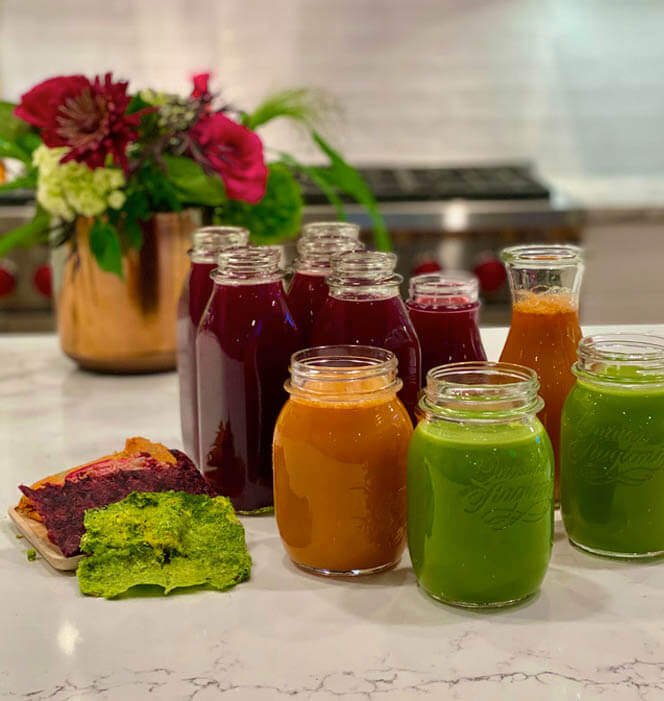
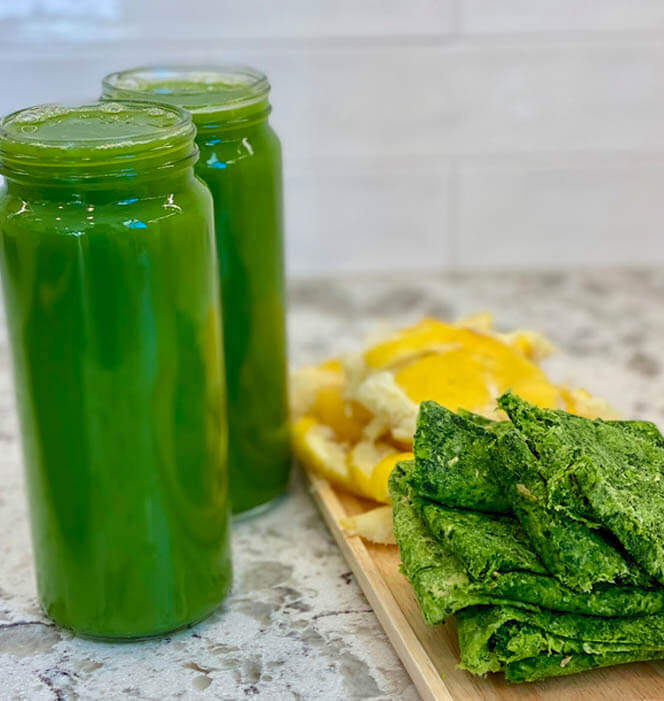
Dr. Ruhoy – Oh gosh, I love cabbage juice and add some broccoli to it. It’s amazing and honestly up until fairly recently. I didn’t realize how well you can juice broccoli. I think it was the PURE Juicer that opened my eyes to the juices that I’ve used in the past, I didn’t juice broccoli as well, so I sort of gave up on it for a while, but I’m back to it and it’s delicious it really is.
Mimi Kirk – The PURE juicer, it’s the PURE Juicer would use a sponge, it would you say anything?
Dr. Ruhoy – I know it will.
Mimi Kirk – It’s so good.
Dr. Ruhoy – It really will, I know it will.
Mimi Kirk – You know I wanna share something my daughter does. And one of my daughters, because she’s an executive director at a preschool and she has to be very organized. And on Sunday she fixes her food for the week, her breakfast and her lunches.
And she’s always got it organized. She spends three hours, four hours, whatever it is getting it all done. So when she rushes off, she makes sure that she has her food with her. And she prepares all, she puts them all the stuff that she’s gonna juice for the day or smoothie, whatever she decides, but juicing and she’ll put those all in a big Ziploc, a reusable Ziploc bag that she gets and she has them all in the refrigerator. So all she does, they’re all clean, ready gone. All she does is take them out and throw them in the juicer. And she’s got her juice to go from the day.
Dr. Ruhoy – That’s fantastic.
Mimi Kirk – She doesn’t have to clean or prepare or do any of the food and I think it’s a really great idea. And when she does fruit smoothies, when she does sometimes, people will ask her to fix their food. And so for a break in the app between lunch and breakfast maybe she’ll freeze. She’ll put all these fruits, pineapple and black cherries, everything organic, and they put them in a freezer bag and then she can take that and put in the blender and add your almond milk. So it’s if you’re busy it’s really nice to get everything prepared so it makes it easy. And she’s the expert at that, I think that’s such a good idea.
Dr. Ruhoy – It’s true for everything, it’s true for.
Mimi Kirk – Yeah I agree.
PURE – Yeah
SMOOTHIES VS. JUICE
PURE – What do you guys tell people that are interested in smoothies versus juices? I mean, I’ve read the difference as far as how it affects your digestive system and that, you know even if you have a smoothie that it’s, you kind of want to mush it around in your mouth because of the digestive process.
Mimi Kirk – You have to chew a smoothie. I mean, people have smoothies and they just drink them but there’s so much fiber in there unless you actually masticate it, I don’t think you’re getting the full benefits of it. You’re just swallowing it. I just want to say for myself that I feel different when I’m juicing than when I’m making a smoothie, I have energy. Like it’s like a shot in the arm, I feel when I drink a juice I just feel energetic immediately. A smoothie it’s delicious and I’ll do that every once in a while but it’s not for the same reason. And even in my book, I have smoothies a lot. I tell people if that’s all you can do is make a smoothie at least do that, but it doesn’t feel as good for me and my body. It doesn’t give me the same amount of energy. And I love the way some of the smoothies taste. I’m usually like a fruit smoothie or you know a nut butter, almond butter and a cacao powder and almond milk kind of girl with some module dates. Those are my kinds of smoothies that I make. But juicing is to me anyway, makes my body feel completely different. I’m sure Ilene knows the best energy level of it, but I only know by what way it makes me feel, so.
Dr. Ruhoy – I completely agree. I mean, smoothie obviously has the fiber and you know and it’s important to say that just because we’re promoting juicing doesn’t mean, you know we don’t think that fiber is important.
Mimi Kirk – Right.
Dr. Ruhoy – Especially if I’m ordering.
PURE – Fiber is a very important part of the diet, right? I mean, it’s very important for the health of our gastrointestinal tract. It’s important.
Mimi Kirk – Right.
Dr. Ruhoy – For a lot of reasons. It holds up, it holds certain vitamins and nutrients as well. So I think smoothies are a great way of getting the fiber fruits and juices, but it is like a meal and it does need to be chewed a little bit because it does have fiber and it needs to start being broken down within the oral cavity.
PURE – Right.
Dr. Ruhoy – Which is where food is meant to be broken down. People who just sort of scuff up their food and eat so quickly like my daughter by the way I’m always telling her to slow down.
Mimi Kirk – I thought he would say like your dog, but…
Dr. Ruhoy – Oh my dog too actually, because they’re rescues and I think they just get excited that they’re being fed.
Mimi Kirk – I think so yes.
Dr. Ruhoy – But when you eat too fast, you don’t allow the enzymes of your oral cavity to really start doing the first part of digestion, which is important to release a lot of the food stuff, for health beneficial properties. So smoothies are similar, I mean obviously the blending process starts to break it down a little bit, but it doesn’t have the benefit of our natural enzymes for appropriate digestion. So it is important to masticate a little bit, but they still have great health benefits for sure. But I agree because of all that fiber, it doesn’t provide as quick of a burst of energy as juicing does and I agree with everything that you just said which is I drink juice and I feel like I could, you know take on the world and I go to work and in a very energetic manner. And when I drink a smoothie, it’s not that I’m, you know lethargic, certainly not. But it does not provide as much of a burst of energy.
PURE – Yeah.
Dr. Ruhoy – Certainly not initially, I think over time because of the healthy lifestyle and healthy choices that we make all of that adds to just an overall sense of wellbeing, which I think is important.
FREEZING COLD-PRESSED JUICE
PURE – Mimi does your daughter ever freeze juices or do either of you freeze juices or would you kind of do smoothies?
Mimi Kirk – I froze juice before and she freezes the juices. We do it in a Mason jar, I did before I knew it was okay to do, I was doing it a long time ago, but I wasn’t sure that I wasn’t losing some nutrients from it. And I, until actually David.
Dr. Ruhoy – Yeah.
Mimi Kirk – Mr. PURE Juicer said that it doesn’t lose any nutrients. (note from PURE, it retains up to 90% of nutrients). And then I felt like all the time I was freezing it, it was okay. And so if I make too much green juice and I know I’m not gonna drink that I freeze the other juices I don’t I try to drink those in within a couple of days but I think freezing is a great idea. I actually think I should do more of it but this is what I found out recently. This was very interesting after all my juicing that I’ve done throughout the years, I started to feel like I only wanted to make enough juice for Mike and I for the day. And it was so fast and so easy ’cause I was always thinking, “Make more juice, “have it for a second day “then you don’t have to choose tomorrow. “Just do it that way, “you don’t have to clean the machines “or the cloth is there.” But honestly, when I’m just do juicing for a day it seems like it takes me no time at all. And I really liked that and that’s what I’ve been doing. I haven’t been making extra juice, but after being flooded with juice this last week, now I want 10 jars of juice in the refrigerator so I can drink all that. So now I’m like go back to my old way of making more juice and then freezing some of it, you know?
TYPE 1 DIABETES AND JUICING
PURE – So speaking of flooding our body with good things, and I’ve heard that too, that you actually, you get the energy and process juice much faster. And food is actually faster than smoothies because I doubt anyone who actually chews their smoothie but that makes a difference. But I think that brings up a question that we get a lot too and that is around type one diabetes. So, do people, and I don’t know if either one of you wanna weigh in or share your opinion on this or your approach. But people with type one diabetes are they allowed to juice, is that safe for their systems? And if so what would you recommend that they juice?
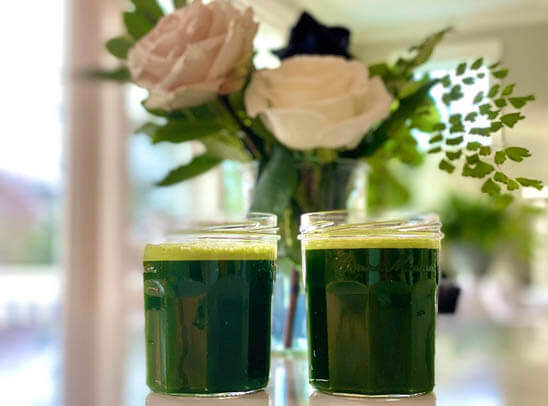
Dr. Ruhoy – So I recommend juicing for type one and type two diabetes. I think that it’s important to realize that they’re you know, the superfoods are very healthy for diabetes and so they can juice the dark leafy greens, they can use even blueberries which are low sweet, but highly antioxidant superfood fruit, foods with manganese are shown to actually help regulate blood glucose. So you know, and garlic for example actually helps to manage blood sugars as well. So I do think that there are some things that they can vary safely and for their health. And so I recommend the dark leafy greens. I recommend garlic often, I recommend, like I said, blueberries and some other superfood fruits, a lot of the berry families I mean even pomegranates actually have been shown not to increase blood glucose. So I think it’s safe to do some a little bit of pomegranate. I do think that there are some really healthy recipes for diabetes.
Mimi Kirk – I have some in my book because I think that’s very important to continue juicing. You just don’t wanna put all the sweet things in there.
Dr. Ruhoy – Yeah.
Mimi Kirk – That’s the one thing I recommend is not to do all the sweet juices. My granddaughter has type one diabetes and she, you know she watches herself and monitors herself very closely and she can drink green drinks without watching anything go up at all. As long as it just doesn’t have a lot of sweet fruits in it. So I think it’s very important for anybody to listen, you know type one diabetes is you got that, that’s it, but if you’ve got type two diabetes you can actually heal yourself from that by drinking juices you can cure yourself from type two diabetes by the way you change your diet. And people who are on medication can get their medication lowered by their doctor once they’re juicing for a while. I know many people that take blood pressure medication and once they started juicing that they told the doctor, what do you think? Because you think you can take me off of this well, let’s try it. And so many of them were able to cut their medication in half. So juicing has all kinds of wonders for everybody’s body is a little different of course but it has, it’s done wondrous for so many people that if anybody does have any physical problems it would be amazing for them to start juicing and work with their doctor if they need to, to say what they’re doing and if they could find a doctor like you maybe that would be good, regular doctors don’t care as much, but you know the regular doctors aren’t even tell you about eating or juicing that’s not their thing. They’re not trained in that and they don’t talk about it, but it does.
BRINGING WESTERN MEDICINE AND WHOLE FOODS TOGETHER
PURE – Dr. Ruhoy can tell us a little bit about your approach or why, how you know, how are you bridging these two worlds together? I feel like we’re all craving it, We all crave it, we all want to be healthy, we don’t want to go see a doctor. You know, we’d like to prevent as much as we can but, you know I think there’s this beautiful combination of what you’re doing, which is you’re healing people with very severe illnesses but you’re also not just using pharmaceuticals. You’re really looking at all of the different things that plants and veggies/fruits and vegetables, and there’s everything that grows that needs the sun to grow to cure people or to make them feel better or just build their body up.
Dr. Ruhoy – So I’m a neurologist but I did training and integrative medicine. And I think the studies are clear there is a nutritional component to a lot of chronic disease, even in neurology. I mean we’ve had, you know in fact, I was co-editor of an integrative neurology textbook that was just recently published by Oxford Press. And in it, you know we talk about in each chapter sort of the role of nutrition. So the role of nutrition in reducing stroke risk for example, the role of nutrition in reducing the risk of cognitive decline and so on, we know that things like diabetes and hypertension, and many of the maladies that many Americans suffer from today are related to lifestyle choices. So it is clear that nutrition plays a role in our health. And so I basically, so I ground myself in that and that knowledge and that literature and in those studies and I use it as an important part of a treatment plan. So you know I don’t, I often don’t use it solely. Obviously there are some patients that come you know to see me for prevention purposes. So sometimes we can just focus on their nutrition and nothing else for awhile. But if someone has a disease, you know it’s an integrative approach, but it always includes nutrition. Because I really think food is probably the number one thing that we can do on our own for ourselves, we have to eat every day. And so it’s important to sort of recognize that foods can either be pro-inflammatory or anti-inflammatory. And so the more choices we make in the anti-inflammatory section the better we are treating our bodies. And I think that’s really important and when it comes to things like supplements, you know I always say that you know, there’s no supplement in the world that is a mask for a crappy diet, excuse my language. But it is true, I mean what’s the point of all these supplements that contain their own excipients and preservatives only to drive through taco bell on the way home for dinner. It doesn’t make sense to me. So I think the fact that the earth has provided us with food stuff means that our bodies are meant to be exposed to the compounds within those foodstuffs. And that’s what our diets and our nutritions focus on. So I’ve just sort of talked about that with patients. And it usually resonates with them, they. You know and obviously, listen you know human behaviors are notoriously difficult to change. And a lot of dietary choices are based on habits and sometimes cultural and I respect that and I’m sympathetic towards it. So that’s why I said earlier that I always explained to them, this is a journey that I go on with you and we will figure out baby steps together. And many patients are really successful at just changing their diet and noticing how much better they feel. So you know, I just sort of incorporated into all that I do with each patient.
Mimi Kirk – I think it’s really interesting that a lot of people don’t pay any attention until they’re sick. That once they get something, they realize, “Oh wait, you know I have a disease “or something has hit me.” I’m always interested in trying to entertain people who are preventative instead of waiting until they get something, because it’s easier to do it if you start early and take care of yourself than to wait until later. It’s much easier to prevent it than it is to turn it around but it all can be turned around. And there are so many people, sometimes my boyfriend has to zip my mouth up at the market when I look at somebody’s shopping cart. It’s like what? You know, I still can’t believe how people eat and I can’t believe what’s on the shelf. All the food that’s on the shelves. Honestly, it makes me wonder about the FDA in general. When I see that they allowed all this chemical foods on the shelf. They’ll say this is a blueberry cereal when there’s no real blueberries in there it’s all chemically made. You’d be better off eating the box, the cardboard box for roughage than you would eating what was in it with all that junk in it. And I’m shocked at the food on the shelves. And I always tell somebody, stick to the outer side where the fruits and vegetables are just shot there. Don’t buy that other stuff because processed food is really not good for you. That’s one of the things, if you can cut out processed food and eat real food, you’re gonna be like 100% better than you were. And that’s the huge thing, we depend on many people to eat processed food for their meals. There’s boxes and cartons and cans and all kinds of stuff that aren’t. They don’t do anything, they’re not healing your body, they’re not doing your body any good.
COLD-PRESSED JUICING AND CHILDREN
PURE – I love seeing how many people are using the juicer for their children. And there was a really cute one where this woman turned the juicer on and her kids snuck down. There was a cute little video of her kids.
Dr. Ruhoy – Oh I saw that one, that was great.
PURE – ‘Cause they, they heard the sound of the juicer. I feel like our kids intuitively know now that juice is really delicious and are, and crave it. And even before I knew juicing I’d had heard that if you can put fruits and vegetables into things and sneak it into kids food, you know that’s what you did, right?
Dr. Ruhoy – Right.
PURE – As I just sneak.
Mimi Kirk – Right.
PURE – To a muffin or something like that. But what the studies was is if they eat it their bodies start to crave it.
Dr. Ruhoy – Yeah.
PURE – So many amazing people saying that their kids my son just guzzled all of the beet juice. I had a beet and a red grape juice and he guzzled it. I was like, well I wanted some for myself. You know, he craves, he loves the juice.
Dr. Ruhoy – So good.
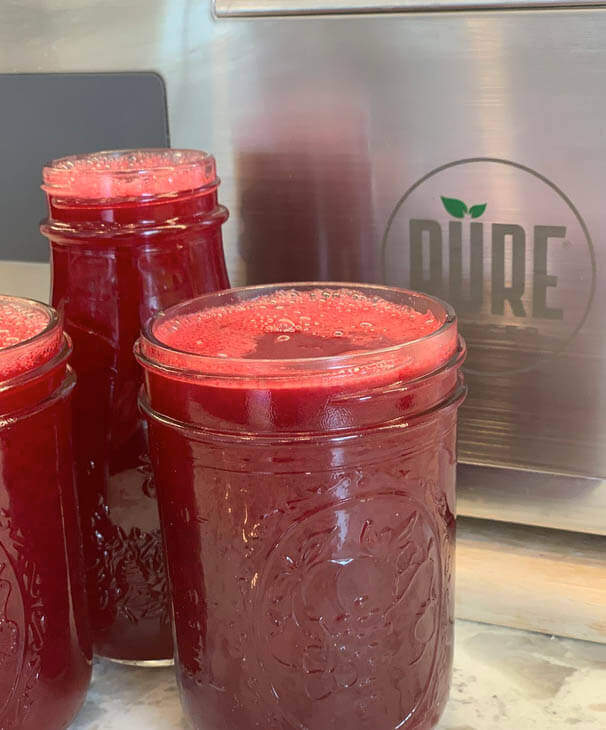
PURE – You know Markia who is also a PURE Juicer. That’s her son’s favorite juice. And so it’s so inspiring to me to see how many young adults and young people and young kids that are getting exposed to all of this now too, because it just makes them crave more of the good stuff. So the boxes will still be there, we can’t control all of those pieces.
Mimi Kirk – Right.
PURE – But if we can continue to just support them with the positive stuff.
Mimi Kirk – Right.
– I try my best with my teenage daughter.
Mimi Kirk – A lot of people, a lot of people don’t like eating the vegetables, the beet for instance, but they love the juice.
Dr. Ruhoy – Yep.
PURE – Yes.
Mimi Kirk – So juicing does, carrots, beets, all of the stuff that they might not wanna eat on their own when you juice it, they it’s a great for them, so.
PURE – I think I juiced the kale because I, for some reason.
Mimi Kirk – Oh I’ve heard it.
PURE – The step of massaging it with olive oil or salad is just too much. I’ll shove that thing down the feed too and I’ll drink it.
Mimi Kirk – I’m addicted to kale salads, I love eating my kale, I love it. Once I have a kale salad and I can eat two big bunches of kale for a kale salad. The next day all I want is kale. I have this thing in my body where I feel addicted to greens.
Dr. Ruhoy – Yes.
PURE – And the more I have the more of it I want.
Mimi Kirk – Oh absolutely.
PURE – Yes.
Dr. Ruhoy – Same here.
PURE – I think Dr. Ruhoy is cool cruciferous, which is kale, broccoli and.
Dr. Ruhoy – Cabbage
Mimi Kirk – And cabbage is great.
PURE – I can’t get enough. And my husband can’t get enough, “Oh my gosh.”
Dr. Ruhoy – Oh that’s great to hear.
PURE – Oh yeah I was out at the grocery store at 7:00 a.m. this morning. ‘Cause I’m like, I cannot have a day without this.
MEN AND JUICING WITH A PURE JUICER
Dr. Ruhoy – Yeah, my husband has become a huge juicer, ever since getting the PURE Juicer frankly.
Mimi Kirk – Yeah.
Dr. Ruhoy – The other juices for some reason he wasn’t interested in. But then he was so interested in the technology of the PURE Juicer and the juice that it made and how delicious it was that he juices all that on the weekends, it’s all he does now. It’s, which is great for me because he does it for me.
PURE – Wow, that’s great.
Mimi Kirk – Well, it’s such a beautiful instrument, you know, it’s like, my boyfriend looks, it’s like having a nice car, you know. It’s like the top of the line, so beautiful.
Dr. Ruhoy – Yeah.
Mimi Kirk – It is. It’s a man’s juicer, you know.
PURE – Oh we’re gonna have a whole series on that. ‘Cause David.
Mimi Kirk – That’s a great idea.
PURE – He’s talking about horsepower and torque and the curves and I was like, “Will, you say that again.” ‘Cause I just, you know it’s just, it sounds so good when he says it and I just need to get him on camera. So we’re gonna break down the whole machine.
Dr. Ruhoy – That’s a great idea.
Mimi Kirk – Because there’s actually quite a few men that juice.
Dr. Ruhoy – Oh yeah.
Mimi Kirk – Population of men who are juicing which is so inspiring.
JUICE FASTING – SAFE OPTIONS AND WHEN TO BE CAREFUL
PURE – Okay one more question and then we’ll need to wrap up because detoxing is a big thing for a lot of people in the juicing community. It’s also a thing that really it is something that makes people not want to juice is this whole concept of fasting and juice fasting. It’s so again, we’re bridging the gaps between all of these different worlds. And I would just love to hear sort of your approach to fasting when you think it’s right. And when you don’t think it’s right when you think it’s wrong.
Mimi Kirk – Well for me, can I go first.
PURE – Sure.
Mimi Kirk – I was gonna say for me I know that I need nutrients. And so I don’t like just fasting on water. A lot of people do that, but for me I think if you’re sick, you might wanna do that. But for me, it doesn’t work as well. I need the nutrients so I like a juice fast and I’ve gone on long ones and I’ve gone on very short ones. And it just depends on what you want. My body is, you know it’s not like I need something heavy duty because I feel like my body’s pretty clean. But every once in a while, I just feel like I need to go for four days or something. And I know even in my book, I did a regular juice fast, where you can have, you know several juices a day and do a longer fast or weak or you can do half juices eight ounces at a time and have that separately throughout the day, or just do the eight ounces. And I think that fasting is very good, it does make my body feel good. I don’t think you have to do it real often if you’re eating clean, just every once in a while when your instincts tell you to. And I think when people are sick, I think juice fasting just having a lot of juice and flooding your body with juice. And my experience has been that it’s very helpful for that. But I’m a light juice faster I have to say, I will do it for three or four days now. I used to do very long once, I mean, I did just a spirulina fast once for 15 days. I was like, emaciated. But it was years ago when I didn’t know anything. I just, somebody said to do that and I did that for all that length of time but not since from now, I just drink juice, I eat healthy and I drink juice and I don’t juice fast that often anymore.
Dr. Ruhoy – Yeah.
Mimi Kirk – That’s just for my body, so.
PURE – I think that too, you struck on a cord. That is one that I’m really passionate about is that, to use juice fasting as a way to I wouldn’t even say balance but to excuse a diet that is unhealthy is yourself up and everyone around you for a different kind of problem, so I think that that’s when it scares me when you start juice fasting because you’re eating so poorly or drinking so poorly you’d have to ask yourself why you’re eating so poorly and drinking so poorly, so much that you need to have another fast.
Dr. Ruhoy – Right.
PURE – I really love the approaches of being gentle with yourself and eating as clean as you can in this world. But even just upping the juice if necessary. But I get concerned when I see that, you know the January one because you had such a crazy December and then you clean yourself out only to mess yourself back up in February. Anyway, what about you Dr. Ruhoy? What’s your take.
Dr. Ruhoy – I completely agree, I mean I think the goal is to eat well enough where you don’t feel the need to detox whatever that means to you. I think that, you know the truth is we live in sort of a toxic chemical Laden world. So I don’t think it unreasonable that every so often you feel as Mimi said the instinct to maybe have to, you know do a little bit of a detox. And I think that you know the body can go without solid foods for a while, but can’t go without hydration. And I think that to juice fast periodically for short periods of time is actually a healthy habit to have certainly and that’s generally what I practice. I sort of know when I need to sort of, you know cleanse a little bit and that’s when I’ll do just a juice fast.
Mimi Kirk – I rarely ever do it longer than a single day to be completely honest. I’ve done it for three days about a year ago in the past when I was a raw foodist I actually did it for a longer period of time and ultimately did not feel as great. So I sort of decided that wasn’t good for at least my body but in past years, I usually just do one day or so of just a pure juice fast. I wanted to mention something and see if you’ve had this before. I have some friends, I think, have some eating disorders and they juice all the time. They go on long juice fast all the time. And when they eat there it was like, “Oh my God I had food to eat,” you know, I can tell there’s something going on because when they do eat a few days in a row, they think, “Oh my God, I’ve been eating so much.” Which they haven’t, I better choose. So I think that this is allowed a lot of people who have at least they’re getting nutrients at least that they’re not starving, but I know that I’m sure that some people that I know or in my past have had some eating disorder and use juicing as the instrument to make themselves not feel guilty for having food.
Dr. Ruhoy – Right, I think that’s a really good point and that is a caveat that we should probably point out that those with a history of eating disorders, I think you know, this takes on a different kind of meaning to them. So a lot of, I think what we’re talking about or where it applies to people who don’t have any eating disorder background or history, but I agree and it’s something to be careful about certainly. And I’m obviously very careful with my patients when they ask me about nutrition and dietary advice, but it is an important point and I think it’s something that people should at least acknowledge and be cognizant of that some people use juicing in inappropriate ways and that’s a different, I think a different conversation.
PURE – Yeah.
Mimi Kirk – Right.
PURE – We could use anything the wrong way to live and so. I think that’s the caveat to life right?
Mimi Kirk – Right.
Dr. Ruhoy – Absolutely.
LAST WORDS ABOUT JUICING, JOY, AND HEALTHY LIVING
PURE – Well, is there anything else that you’d like to share with the audience about juicing, about life? Just anything that comes to mind that you’d like to end with. We’re just so grateful again for your time.
Mimi Kirk – Well for me, I’d like to end with this. I think that you have to make a commitment, you have to love yourself and you have to make a commitment to yourself in order to take care of yourself. And for women and some men we’re so used to taking care of other people all the time. And it’s always hard when you have younger children because your whole focus is on them and at some point after the kids are grown a little bit you start to focus on yourself. And I’d like to encourage people that you could do both at the same time. You can take good care of yourself in order to take good care of your kids. And don’t put yourself last, treat yourself like someone you love and give yourself the best that you can and be kind and gentle and make peace with your faults and celebrate your successes and just love who you are and be as true to yourself as you can. That’s what I’d like to say.
PURE – Yes, I love it.
Dr. Ruhoy – Those are great words Mimi. Authenticity, that’s what I think we all should be. We need to live in a life. And just from a health perspective I think treating our bodies well really is the only way that we can control how our body operates and how our body responds to certain stressors of the body, whether it’s an exogenous from the outside or endogenous from the inside. And I think maintaining resiliency for our body is important as we certainly as we age and as we go through life, ’cause life can be hard and that resiliency can be important and that resiliency can come from how we treat ourselves. So not only physically but emotionally, socially, mentally, spiritually, and so on. But to sing is such a great way of maintaining strength in our physiology.
Mimi Kirk – That’s great, that’s true.
PURE – Oh my gosh, you guys you’re so amazing. I wanna drink more juice even though I had a bunch of juice today.
Mimi Kirk – I wish. I need some.
PURE – Shaking up a glass. I hadn’t thought about that.
Mimi Kirk – Can I ask you guys one juicing question? Do you peel your beets?
PURE – No.
Dr. Ruhoy – I don’t actually just wash them. We scrub them?
PURE – Yeah.
Mimi Kirk – Okay, all right that’s what I’ve been doing.
Dr. Ruhoy – You know if you have a resistant area, which just refuses to be cleansed then I will peel that portion, but.
Mimi Kirk – I usually cut the bottom off, but the same thing with carrots, I scrubbed my carrots too. I was just wanting to know, ’cause I’m ready to juice a batch and that’s what I usually do. And I thought, should I be leaving this on? But I do scrub it really well so we’re good.
Dr. Ruhoy – Don’t forget a little bit of dirt has some B12 in it, so.
Mimi Kirk – Yes, I know and don’t wear and don’t wear white while you’re juicing beets.
Dr. Ruhoy – That’s the word of wisdom. That’s the word of wisdom I’m gonna take away,
PURE – Those are good.
Mimi Kirk – Don’t wear white while you’re juicing beets.
PURE – That’s a good note to end on. I’m gonna have you guys you guys back together. I hope we can do this more often and.
Dr. Ruhoy – This was so much fun Mimi.
Mimi Kirk – It really was fun.
Dr. Ruhoy – So happy to have met you, I’ve been following you for such a long time, I have all your books.
Mimi Kirk – Oh, that’s so great to hear really nice, yeah.
PURE – I am getting a puppy so I have your “Raw Vegan,” book.
Mimi Kirk – Oh good.
PURE – I’m gonna start cooking up some or not cooking up. Just chopping up some delicious food for my new puppy.
Mimi Kirk – Oh yeah, you have a microplane? You have a microplane?
PURE – Yeah.
Mimi Kirk – Oh yeah , well use that on top of your dog food with fresh fruit. That’s a really good hint. You’ll like the book when you sit down and read it and you can eat that food too, by the way. It’s all human, so.
PURE – So all right, thank you so much.
Dr. Ruhoy – All right guys.
Mimi Kirk – I’m glad we had this conversation.
PURE – Bye, bye.
Mimi Kirk – Bye, bye this was great.
About Mimi Kirk: http://youngonrawfood.com/
Mimi is a Best Selling Author, internationally renowned lecturer, raw food chef and coach. She is the mother to four children, 2 girls and 2 boys. She also has 7 grandchildren. She grew up in Hollywood California. Married at 17 and widowed at 29. She’s been a vegetarian and vegan for the better part of 50 years.
She won the title of the “Sexiest Vegetarian over 50”, at the age of 70.
About Dr. Ruhoy
Ilene S. Ruhoy, MD., Ph.D. is a board-certified neurologist and founder and medical director of the Center for Healing Neurology, an integrative neurology practice in Seattle, WA. She is also the new medical director for the EDS/Chiari Center at Mt. Sinai South Nassau Hospital.
Originally from New York City, she trained in both pediatric and adult neurology at the University of Washington and Seattle Children’s Hospital. She is a graduate of the University of Arizona Integrative Medicine Fellowship and is also a graduate of the Helms Medical Institute Acupuncture for Physicians certification program. Her Ph.D. is in Environmental Toxicology.
Dr. Ruhoy serves as the Chief Medical Officer for PURE Juicer, LLC and is the co-editor of Integrative Neurology, an Andrew Weil, MD Integrative Medicine series, published by Oxford Press in July 2020.
She is a plant-based advocate as she is passionate about food as medicine and the medicinal purposes of plants.
